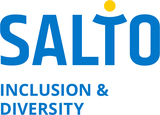Underpinning Principles: Empowerment
Empowerment has become a common buzz word in recent times.
Yet, despite its common usage no single definition has been widely agreed or accepted.
Perhaps this lack of a common definition is reflective of an understanding that empowerment, and in particular the empowerment of women, has different meaning to different people and different cultures and that, whilst empowerment can lead to collective action for positive change, empowerment is, essentially, an individual experience and action and is therefore difficult to define in generic terms.
Some definitions:
"Empowerment means that people, especially poorer people, are enabled to take more control over their lives, and secure a better livelihood with ownership and control of productive assets as one key element."
(Chambers 1993).
"Empowerment is how individuals/communities engage in learning processes in which they create, appropriate and share knowledge, tools and techniques in order to change and improve the quality of their own lives and societies. Through empowerment, individuals not only manage and adapt to change but also contribute to/generate changes in their lives and environments".
(UNESCO 1998)
"Empowerment ... refers to the expansion in people's ability to make strategic life choices in a context where this ability was previously denied to them".
(Kabeer 2001).
"Empowerment is the process of enhancing the capacity of individuals or groups to make choices and to transform those choices into desired actions and outcomes. (...) Empowered people have freedom of choice and action. This in turn enables them to better influence the course of their lives and the decisions which affect them."
(World Bank and empowerment)
^^ top ^^
Pedagogy of the Oppressed:
One specific way of dealing with empowerment, is expressed by Paulo Freire in "Pedagogy of the Oppressed" (1968):
"freedom [empowerment] is acquired by conquest, not by gift. It must be pursued constantly and responsibly. Freedom [empowerment] is not an ideal located outside of man; (sic) nor is it an idea which becomes myth. It is rather the indispensable condition for the quest for human completion."
According to Freire, empowerment will come from praxis: a cyclical process of experiential learning wherein the individual examines their current life situation, identifies what they would like to change, takes action to make that change happen, then reflects on that action.
Empowerment, then, is a continuous process, for as we progress through life's ages and stages, as outlined earlier in Erikson's Epigenetic Principle, our needs and aspirations can and will change.
For more information on the Erikson and Freire, see the section Hunger for more in the section "Hunger for more?".
^^ top ^^
Rappaport & Zimmerman
According to Julian Rappaport and Marc Zimmerman, empowerment has a very specific view on social problems and solutions: the focus is on the strength of people, groups, and organisations. The starting point of the process of change is within the individual (in relation with the group) and not with those who define problems, analyse them and propose solutions. The people themselves propose solutions and develop their own process. Empowerment is not a "ready-to-use" method - it's a particular perspective on society dealing with its problems. It starts from the strengths of people and not from their deficits.
For more information on the Rappaport and Zimmerman, see the "Hunger for more" section.
Empowerment does not mean redistribution or shifting of power from one individual (or community) to another.
Empowerment means equilibrium across the gender, race, and age, religious, economic and social spectra.
Empowerment means equality and respect for the hopes and aspirations of each and every individual.
Empowerment means ensuring that individuals have the capacity and opportunity to equip themselves with the skills and knowledge necessary to make informed life choices.
Self Empowerment begins and ends with the self: empowerment is an individual's quest to find their position and role within family, community and society.
However, perceptions of being empowered vary across time, culture and domains of a person's life.
For example: in Belgium empowerment is a relatively new concept and is related, mainly, to the empowerment of any socially disadvantaged group and is not specifically related to ethnic minority groups.
In Italy, on the contrary, this concept is very much linked with the feminist movement and the empowerment process of women in society at large.
In the United Kingdom empowerment has for a number of decades been viewed as a "political" ideology and is closely related to social policy and practice.
^^ top ^^
 Hellooo girls!
Hellooo girls!
